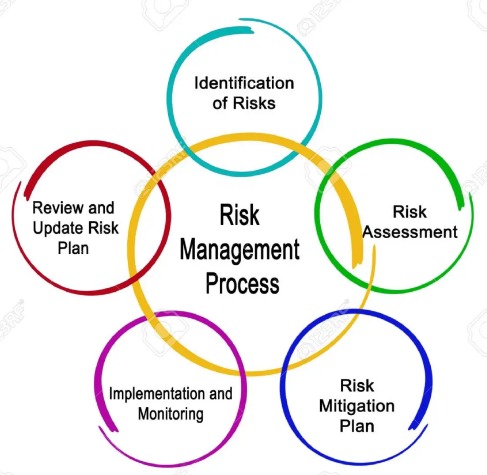Corporate Legal Risks – Things every Corporate Lawyer should know

In today's ever-changing business environment, it is more important than ever for corporate legal departments to be able to track and manage legal risks. Legal risks can arise from a variety of sources, including changes in legislation, new regulations, and evolving business practices. By tracking legal risks, corporate legal departments can help to protect their companies from financial losses, reputational damage, and other negative consequences.
Few examples of legal risks faced by corporates
Litigation: Litigation is a risk that any business faces. It can be costly, time-consuming, and damaging to a company's reputation. To address this risk, businesses should have a strong risk management plan in place that includes insurance coverage for potential litigation costs. They should also have a team of experienced lawyers who can help them defend themselves in court.
Regulatory compliance: Businesses are subject to a wide range of regulations, both federal and state. Failure to comply with these regulations can result in fines, penalties, and even criminal prosecution. To address this risk, businesses should have a team of lawyers who can help them understand and comply with all applicable regulations.
Intellectual property infringement: Businesses that develop or own intellectual property, such as patents, trademarks, and copyrights, are at risk of having their intellectual property infringed upon by others. This can result in lost revenue, damages, and even injunctions against the infringer. To address this risk, businesses should have a strong intellectual property protection strategy in place that includes registration of their intellectual property rights, monitoring for potential infringement, and enforcement of their rights against infringers.
Data breaches: Data breaches are a growing risk for businesses of all sizes. They can result in the loss of sensitive customer data, such as credit card numbers and Social Security identify registration data. This can lead to financial losses, lawsuits, and damage to a company's reputation. To address this risk, businesses should implement strong data security measures, such as encryption, access control, and monitoring. They should also have a plan in place to respond to a data breach if it occurs.
Do you have risk management framework?
There are a number of ways that corporate legal departments can track legal risks. One common approach is to use a risk management framework. A risk management framework is a systematic approach to identifying, assessing, and mitigating risks. By following a risk management framework, corporate legal departments can ensure that they are taking a proactive approach to managing legal risk
Embrace the power of Technology
Another way to track legal risks is to use legal technology. Legal technology can help corporate legal departments to automate tasks, manage documents, and track legal spend. This can free up legal professionals to focus on more strategic and value-added work, such as risk assessment and mitigation. By tracking legal risks, corporate legal departments can help to protect their companies from a variety of potential problems. By taking a proactive approach to risk management, corporate legal departments can help to ensure that their companies are prepared for whatever challenges the future may bring.
How to handle corporate legal risks
Having a strong legal team: First of all a good legal team can help businesses to understand the law, to comply with the law, and to resolve legal disputes.
Having a strong compliance program: A compliance program can help businesses to identify and prevent legal risks. A corporate legal compliance program is a set of policies, procedures, and training designed to help a company comply with the law. A well-designed compliance program can help to prevent legal problems, such as fines, lawsuits, and criminal prosecution.
Having a strong risk management program: A risk management program can help businesses to identify and assess the risks that they face, and to develop plans to mitigate those risks. A corporate legal risk management program is a systematic approach to identifying, assessing, and mitigating legal risks. The goal of a risk management program is to protect the company from financial loss, reputational damage, and other negative consequences that can arise from legal problems.
Identify potential risks. The first step is to identify all of the potential legal risks that your company faces. This can be done by conducting a risk assessment, which involves identifying the potential risks, assessing the likelihood and severity of each risk, and determining the impact of each risk on the company.
Assess the risks. Once you have identified the potential risks, you need to assess the likelihood and severity of each risk. This will help you to determine which risks are the most important to focus on.
Mitigate the risks. Once you have assessed the risks, you need to put in place measures to mitigate them. This may involve implementing policies and procedures, training employees, or purchasing insurance.
Monitor the risks. It is important to monitor the risks on an ongoing basis to ensure that they are still being mitigated effectively. This may involve conducting regular risk assessments or reviewing new legislation and regulations.
By following these steps, corporate legal departments can help to track and manage legal risks. This can help to protect your companies from financial losses, reputational damage, and other negative consequences.
Then, why Corporates fail to implement a Legal Risk framework?
In my experience, there are mainly three reasons that pull back corporate lawyers to implement a legal risk management framework.
First of all lack of expertise: Corporate lawyers may not have the expertise to implement a legal risk management framework.
Secondly, lack of cooperation from other departments: Other departments, such as compliance, finance, and operations, may not be willing to cooperate with corporate lawyers in implementing a legal risk management framework.
Finally, Legal risk management is not a priority: Legal risk management may not be a priority for the company.
Do you agree?










